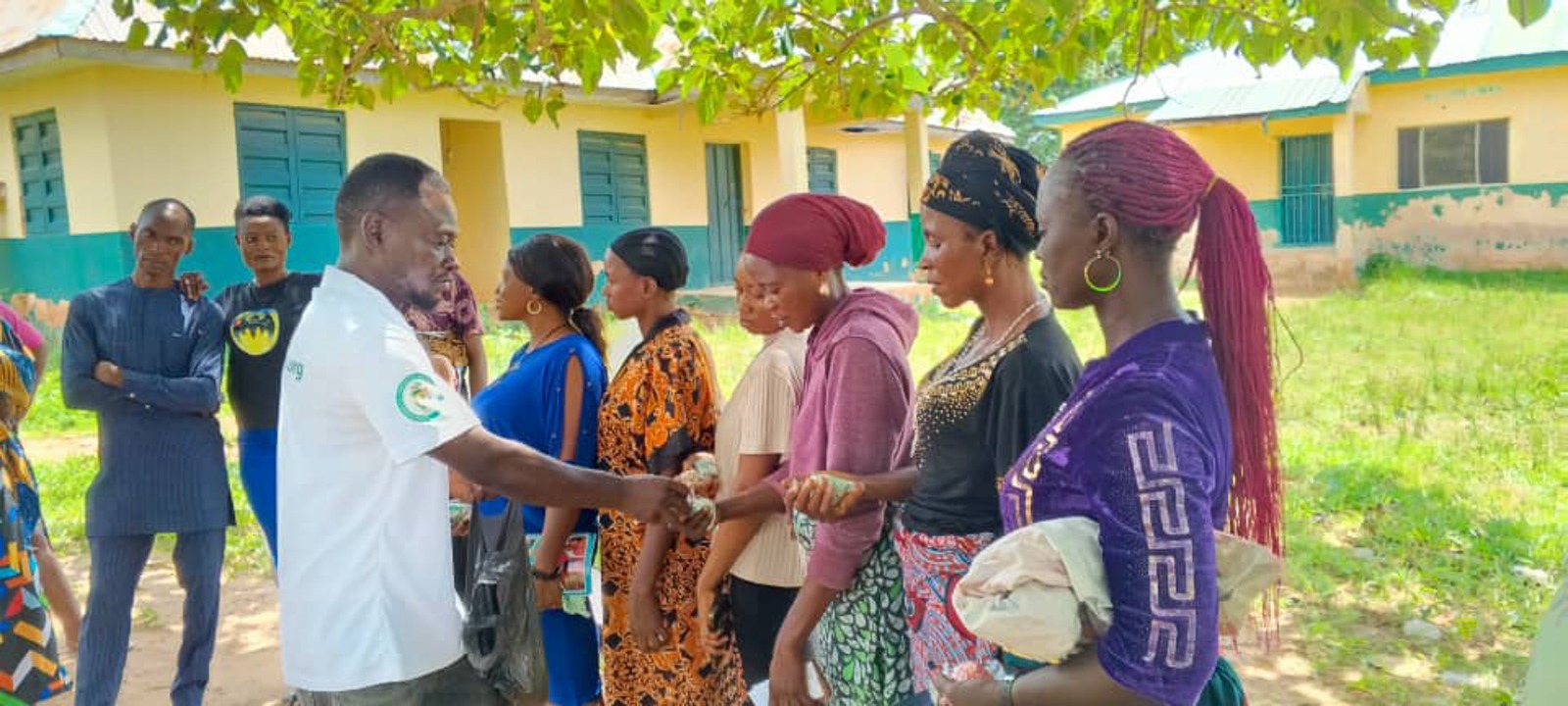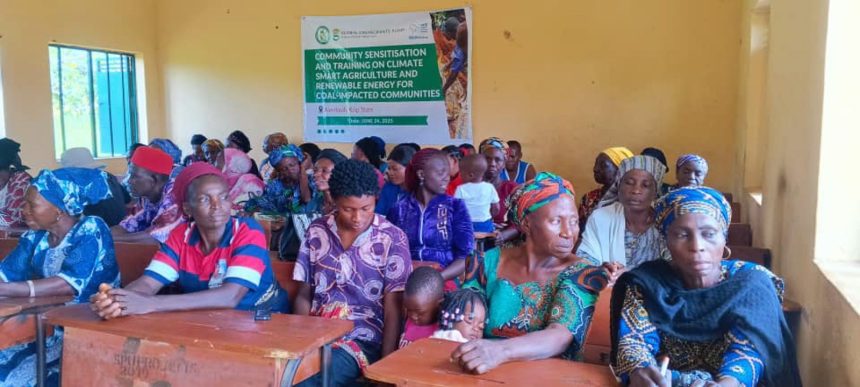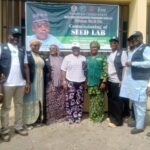By Precious Okuku
1The Global Initiative for Food Security and Ecosystem Preservation (GIFSEP), has trained women farmers in Awokpali, Ankpa Local Government Area of Kogi State, on Climate-Smart agriculture, in a move aimed at tackling food insecurity and environmental degradation caused by coal mining.

Supported by the Global Greengrants Fund (GGF) and 350Africa, the one-day sensitisation and training, brought together 50 women and community leaders. It focused on soil health, compost production, sack farming and the preparation of organic pesticides.
Facilitating one of the sessions, Mr. Kajoh Joshua, the Project Officer, explained that coal mining had stripped farmlands of fertile soil, vegetation, and water resources, making farming increasingly difficult for the community. “Climate-Smart Agriculture offers a sustainable pathway to increase food production, enhance resilience to climate variability, and reduce greenhouse gas emissions,” he said.
The training included hands-on demonstrations on sack farming, a technique where crops are grown in soil-filled sacks, suitable for areas with limited arable land, and compost making, which uses layered organic waste to restore soil nutrients. Participants also learned to prepare organic pesticides from neem leaves, pepper, and garlic as an eco-friendly alternative to chemical pest control.
At the end of the programme, the participants received agricultural seeds and sacks as starter packs to help them begin implementing the techniques immediately. One of the beneficiaries, Mrs. Rachel Agagwu, expressed gratitude to GIFSEP, GGF and 350Africa, saying, “We now have the knowledge and resources to farm sustainably, even with the challenges our land faces.”
GIFSEP says the adoption of these climate-smart practices will improve food security, enhance soil fertility, and increase resilience against climate change in coal-affected communities in Kogi State. When implemented in other similar regions across the country, these benefits can also be replicated.







